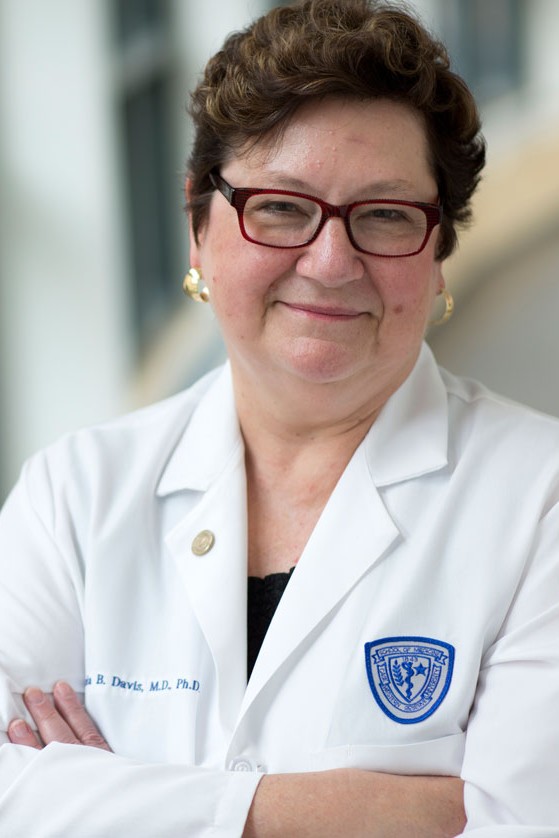

School of Medicine Dean Pamela B. Davis, MD, PhD, and Department of Physiology and Biophysics Chair Walter Boron, MD, PhD, have won election to the Institute of Medicine of the National Academies (IOM), one of the nation’s most prestigious societies for health and medicine.
“We congratulate and applaud these two faculty leaders on achieving one of the highest honors available in the medical sciences within this country,” President Barbara R. Snyder said. “Both have made extraordinary discoveries within their respective fields, and we are delighted that their accomplishments have been recognized by such distinguished colleagues.”
The Institute of Medicine on Monday named the pair among 70 new members and 10 foreign associates announced as part of the 2014 class. The individuals are chosen by active IOM members, using criteria that include significant contributions to medical sciences, health care and/or public health. As the IOM explains, membership “recognizes individuals who have demonstrated outstanding professional achievement and commitment to service.”
Davis joined the Case Western Reserve medical school faculty in 1981 after earning her undergraduate degree at Smith College and medical and doctoral degrees at Duke University. A renowned researcher of cystic fibrosis, Davis has published more than 130 articles in peer-reviewed journals, holds seven patents, and has received continuous funding from the National Institutes of Health (NIH) for more than three decades. Dean of the School of Medicine since 2007, Davis also has been the principal investigator on the two largest NIH grants ever awarded in Northeast Ohio: a $64 million Clinical and Translational Science Award (CTSA) in 2007 and a $64.6 million CTSA renewal in 2012.
Boron, meanwhile, came to Case Western Reserve University in 2007 after spending nearly three decades at the Yale University School of Medicine. He earned his undergraduate degree at St. Louis University and his medical and doctoral degrees at Washington University in St. Louis. Boron traces his interest in physiology to the day a high school teacher gave him a Scientific American article about the synapse by Nobel Prize-winner John Eccles. Boron’s own research has focused on acid-base homeostasis, in particular the regulation of intracellular pH. His projects also explore the molecular mechanism of gas channels. Boron is a past president of the American Physiological Society, the founding editor-in-chief of the journal Physiology and the co-editor of the medical student textbook Medical Physiology: A Cellular and Molecular Approach.
The two join four other Case Western Reserve faculty previously elected to the IOM: in 2011, John Chae, MD, chair of the Department of Physical Medicine and Rehabilitation; in 2003, James M. Anderson, MD, PhD, professor of pathology, macromolecular science and biomedical engineering; in 1999, Kurt Stange, MD, PhD, professor of family medicine, epidemiology and biostatistics, sociology, and oncology; and in 1983, Duncan Neuhauser, PhD, professor of medicine, family medicine, organizational behavior and health management.
